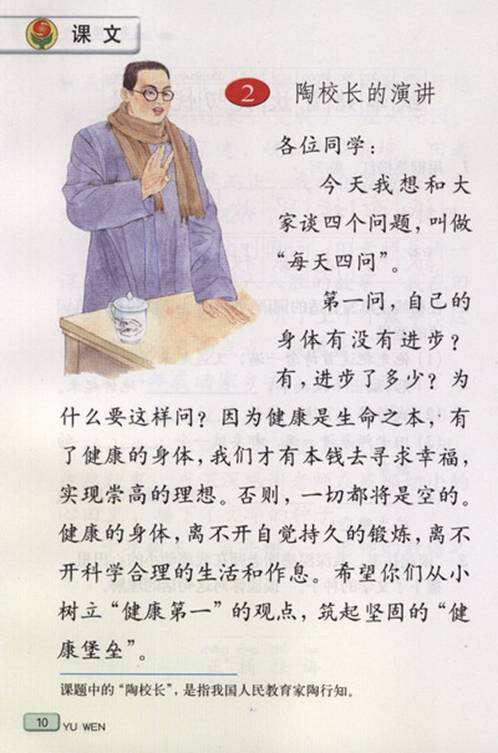Tao Xingzhi Agreat educator and reformer
3 min readEducator and reformer Tao Xingzhi devoted his life to promoting mass education in China,especially education in rural areas,in the first half of the 20th century.
Born in Anhui Province in eastern China,Tao was the son of a bankrupt merchant and the family was unable to afford his schooling.But when Tao was six,a local village scholar dis-covered that the boy was very bright and keen to study, so he financed Tao’s primary schooling.
When Tao was 15, he was enrolled into a missionary school in Shexian County where his mother was a helper. On seeing his talent, the school’s principal waived his tuition. Tao completed three years of study in two years.
In 1909, with financial aid from a church, Tao studied Chinese literature at Nanking University, which merged a yearlater with the Private University of Nanking, in today’s Nan-jing in eastern China. After graduation in 1914, Tao continued his education in the United States.
In the US, he obtained a master’s degree in political sci-ence at the University of Illinois and then went on to study education under the guidance of John Dewey, an important American psychologist, philosopher and educational reformer.
Dewey was a major representative of progressive education and liberalism.
But when Tao returned to China in 1917 and began his own career as a liberal educator, he did not blindly champion Dewey’s progressive education. Instead, he changed the American educator’s motto of”Education is life itself” into “Life is education.”He even changed his original given name Zhixing or “knowledge-action”into Xingzhi or “action-knowledge.”
Meanwhile, Tao also advocated his ideas of “society as school”and “integration of teaching, learning and acting.”

To promote mass education, Tao joined hands with Y.C.
James Yen, another liberal educator, in organizing a National Association of Mass Education Movements. They recruited thousands of volunteer teachers who at one time taught as many as 5 million students around the country.
In 1927, Tao set up Xiaozhuang Normal College in a vil-lage in the northern suburbs of Nanjing to train teachers who would teach in rural areas after their graduation.
Later, he had also launched the Life Education Associa-tion and the Work Study Movement.
After the Japanese invasion of China began in 1937, Tao cut short a visit to the United States and returned to China. In 1939, he founded Yucai Middle School in the suburbs of Chongqing, then the interim capital of the country. He offered free education to refugee children and children of the Commu-nist Party of China members.
One of his students was Li Peng, who later became the premier of the People’s Republic of China more than four decades later.
However, due to his sympathies with Communist Party leader Mao Zedong’s policies in fighting the Japanese invasion and his own liberal thinking, Tao was frequently harassed by the secret police.
After the assassination of two fellow patriotic intellectu-als, Tao said that he was ready for the “third bullet.”In 1945, he joined the China Democratic League and then moved to Shanghai, where he worked frantically to advocate democracy and called on all social sectors to fight against dic-tatorship and to head off a pending civil war.
In the last 100 days of his life, Tao made more than 100 speeches in schools, factories and public squares. He died of a cerebral hemorrhage in Shanghai on July 25,1946. He was 55.
After learning of Tao’s death, Zhou Enlai,a Communist Party leader and later the first premier of the People’s Republic of China, rushed to his home to pay his last respects to the great educator and reformer. Zhou called Tao a “non-Party Bolshevik.”








